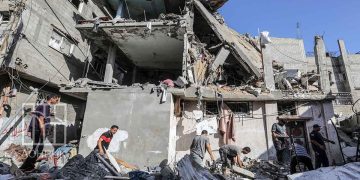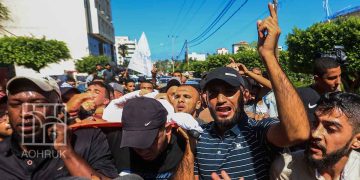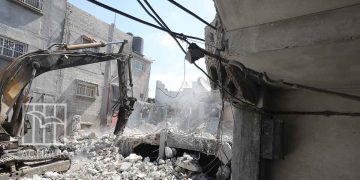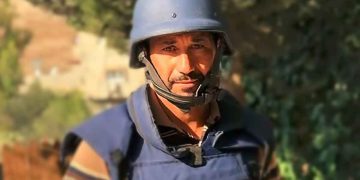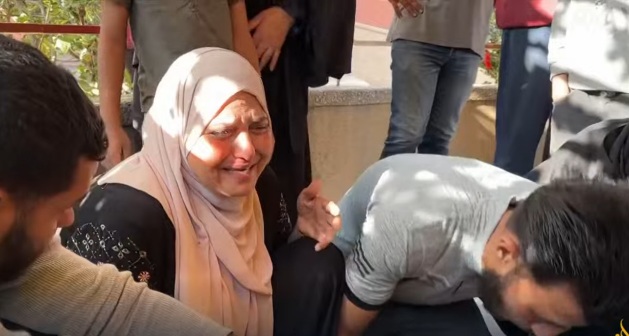In a harrowing continuation of what many are calling a policy of genocide by the Israeli occupation, at least 41 civilians were killed since dawn on Thursday, following a series of airstrikes and artillery shelling that targeted residential areas and overcrowded shelters across the Gaza Strip.
Field sources reported that a strike hit a shelter housing displaced families near the water reservoir in Al-Baraka, Deir al-Balah (central Gaza), killing 10 civilians, including nine members of a single family—yet another massacre in the ongoing campaign against Palestinian families.
In a separate attack, two people were killed after Israeli forces targeted a tent sheltering displaced persons in Al-Sadaqa refugee camp, south of Deir al-Balah. Five more civilians were killed in northern Gaza City following the bombing of the Bakheet family’s home in the Al-Saftawi area.
The violations extended beyond air raids. Israeli military vehicles stormed the courtyard of Al-Awda Hospital in Tel Al-Zaatar (northern Gaza), opened fire in the vicinity, and set fire to tents sheltering displaced families—a blatant assault on one of the few remaining places of refuge for civilians.
Simultaneously, Israeli forces carried out the systematic destruction of residential buildings in eastern Al-Qarara, northeast of Khan Younis. Airstrikes also targeted two homes in the Al-Zarqa area (northern Gaza), killing everyone inside, in what appears to be a deliberate policy of erasing Palestinian civilian life.
A major fire broke out in Al-Ragheb Tower in Al-Karama, northwest Gaza, following a direct strike by Israeli warplanes.
Civil defence teams continue to face enormous challenges reaching bombed areas due to the widespread destruction of roads and infrastructure. Rescuers are often forced to travel on foot and use rudimentary tools in the absence of heavy equipment.
These attacks form part of a recurring pattern that collectively meets the legal definition of genocide, as outlined in international conventions, most notably the 1948 Convention on the Prevention and Punishment of the Crime of Genocide. That convention defines genocide as acts committed with the intent to destroy, in whole or in part, a national, ethnical, racial or religious group—including mass killings, infliction of serious bodily or mental harm, and deliberately inflicting conditions of life calculated to bring about the group’s physical destruction.
Since 7 October 2023, Gaza has witnessed the killing of 53,655 people and the injury of 121,950 others, under a suffocating blockade, complete collapse of healthcare services, deliberate destruction of infrastructure, and repeated attacks on shelters, hospitals, and schools. These assaults mark a clear continuation of ethnic cleansing and genocide aimed at the erasure of the Palestinian presence in Gaza.
The international community’s failure to stop these crimes or hold perpetrators accountable does not absolve it of moral and legal responsibility. Silence in the face of atrocities—documented daily through photos and eyewitness reports—amounts to implicit complicity, undermining the very foundations of justice and the rule of international law.
What is unfolding in Gaza is not merely a humanitarian tragedy—it is a historic crime that demands immediate international action, decisive measures to protect civilians, and an urgent end to the systematic genocide being carried out with impunity.


